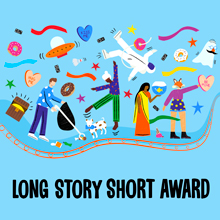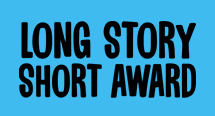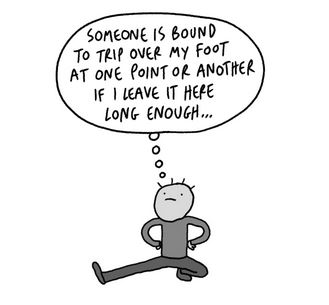Sure, a few of the vowels are missing,but I'm no dummy,though rushing toward the nextinconsequential ... [+]
***
On February 22, 1948, a large parade marches down the streets of Prague. The procession consists of Communist action committee members. A civil war looks imminent. Three days later, President Edvard Beneš appoints a new government in accordance with the demands of the Communist Party of Czechoslovakia.
***
I step onto the bus, a foreigner. The driver's terse request for a ticket no longer comes as a surprise. I've been in the country for two weeks now, and I'm still trying to understand the Czechs. Hailing from the land of hi-how-are-you, I find Czech mannerisms to come off quite cold. Not a refreshing cold, giving relief on a scorching summer day like today, but an iceberg cold that says if you get too close I will sink you. If you stay away, there will be no problems. I am a Christian missionary.
***
On March 10, 1948, the body of Jan Masaryk, the last non-Communist government leader, is found in the Foreign Ministry courtyard beneath a window of his apartment.
***
The tears are a surprise. No, not a surprise. More an anomaly, in the foreigner's mind. For years, these tears could only be shed behind closed doors with close loved ones. The outside required a face of strength, resilience. Never weakness. Never resistance. For many, showing no emotion became the most effective method to face the collective nightmare. The foreigner feels he should look away. But then he notices the father. The father fights to hold back signs of the fatherly pride—and possibly the fatherly sorrow—he feels in watching his son go. But his eyes, too, betray him.
***
On January 16, 1969, 20-year-old student Jan Palach protests the lack of freedoms and the passivity of the citizens by setting fire to himself in downtown Prague's Wenceslas Square. He dies three days later from the third-degree burns covering 85 percent of his body.
***
The mother stands outside, watching the bus pull away. Watching her son go. A son who did not live the horrors of the past but has surely seen its ghosts. They may float through classrooms during history lessons or emerge during discussions at the dinner table. The child is innocent, but he is growing. And his mother's tears show how watching this next step happen in life can be hard, even for those who have lived through unquestionably harder times.
***
On the 20th anniversary of Jan Palach's sacrifice, Czechoslovakians take to the streets in demonstrations against the totalitarian regime. Water cannons come out. Protestors are beaten by police.
***
The mother's tears stay with me. It has been over five years since I sat as a foreigner on that bus. Those tears fought through a wall of protection erected during the era of quiet horror that the parents lived through, that all Czech adults lived through. It is a reality I will never know. It is a reality I can only try to imagine. It is a reality that consumed people's lives. But it did not consume people's humanity. I can still see the mother's tears.
***
On November 17, 1989, student protestors march the streets of Prague. Near the city center, riot police respond with an attack. The Velvet Revolution begins. Peaceful protests gain momentum. A national strike receives recognition. On December 10, 1989, new leaders are appointed to the first non-Communist government since 1948.
***
On that day, tears surely flow.




